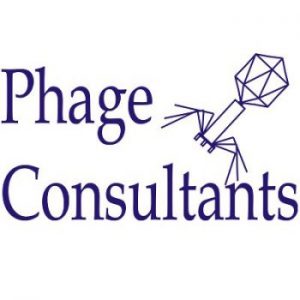By Phage Consultants
Academic Study: Reducing Bacteriophage Contamination
Overview
Phage Consultants co-founder and CEO Dr. Marcin Los is lead author of a seminal academic study that proposed simple methods to prevent bacteriophage contamination disrupting biotech facilities and ruining growing cell cultures.
The study ‘Bacteriophage contamination: is there a simple method to reduce its deleterious effects in laboratory cultures and biotechnological factories?’ was co-authored with University of Gdansk colleagues, Agata Czyz, Eugenia Sell, Alicja Wêgrzyn and Grzegorz Wêgrzyn, in collaboration with Peter Nebauer from University of Oulu, Finland. It was originally published in the Journal of Applied Genetics (J. Appl. Genet).
Abstract
Infection of bacterial cultures by bacteriophages as well as prophage induction in the host cells are serious problems in both research and biotechnological laboratories.
Generally, prevention strategies (like good laboratory/factory hygiene, sterilization, decontamination and disinfection) are necessary to avoid bacteriophage contamination. However, it is well known that no matter how good the laboratory/factory practice and hygiene are, bacteriophage infections occur from time to time.
The use of immunized or resistant bacterial strains against specific phages may be helpful, but properties of the genetically modified strains resistant to phages are often worse (from the point of view of a researcher or a biotechnological company) than those of the parental, phage-sensitive strains. In this article we review recent results that may provide a simple way to minimize deleterious effects of bacteriophage infection and prophage induction. It appears that low bacterial growth rates result in a significant inhibition of lytic development of various bacteriophages. Moreover, spontaneous prophage induction is less frequent in slowly growing bacteria.
Lead author:
Dr. Marcin Los studied at the Intercollegiate Faculty of Biotechnology of the University of Gdansk, Poland, and the Medical University of Gdansk in 1995, and earned his MSc at the University of Bradford, UK. In September 1999, he started his PhD studies in Molecular Biology at the University of Gdansk. He spent one year at the Fraunhofer Institute for Silicon Technology in Itzehoe, Germany, as a researcher involved in the construction of novel virus detection methods, before obtaining a PhD in 2004. Marcin was a Secretary of the Main Board of Polish Genetic Society and is currently employed as an adjunct professor at the University of Gdansk and adjunct professor at Institute of Physical Chemistry in Warsaw. He is also CEO of Phage Consultants.

















